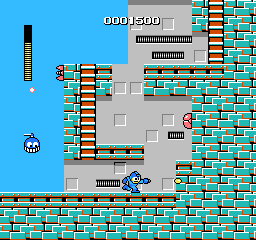 Mega Man, a series franchise was born in the month of December, a series we rarely hear about today but one that inspired many great games in the side scrolling genre. Mega Man was foundation brick in the early Nintendo consoles and a bread winner for Capcom, he was a mascot to represent a genre typically dominated by Mario.
Mega Man, a series franchise was born in the month of December, a series we rarely hear about today but one that inspired many great games in the side scrolling genre. Mega Man was foundation brick in the early Nintendo consoles and a bread winner for Capcom, he was a mascot to represent a genre typically dominated by Mario.
The name Mega Man, in the 1980’s was synonymous with the word awesome. It was also synonymous with the word difficult.
A character that had so much potential you can now find him in mobile phone gaming and the virtual console in Europe.
“In the year 200X, master robot designer Dr. Thomas Light, and his assistant, Dr. Wily, worked on a project to create human-like robots with advanced intelligence.” (wikipedia) Each robot was designed to perform a specific task, Cut Man was designed to cut down trees, Guts Man is designed to pickup heavy things, Ice man for arctic exploration, etc. His assistant grew envious of Dr Light so he reprogrammed the robots to do his bidding, which was nothing but evil. Your job is to undo this evil.
(more…)
Podcast: Play in new window | Download


You got a Ryzen 7, AMD is killing it!